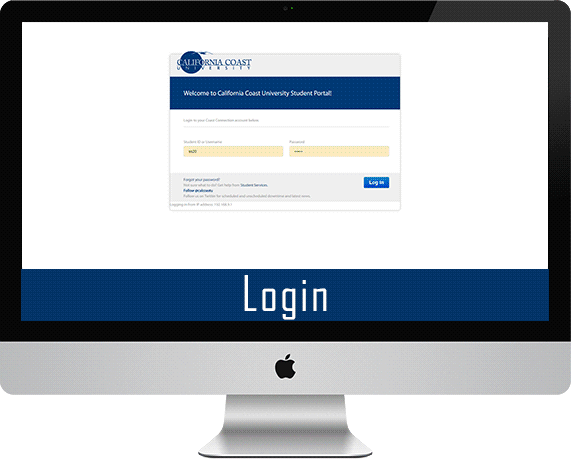| ID |
Course Name |
Units |
|
BAM 509 |
Management Information Systems |
3 |
Management Information Systems is designed for business students who want an in-depth look at how business firms use information technologies and systems to achieve corporate objectives. Information systems are one of the major tools available to business managers for achieving operational excellence, developing new products and services, improving decision-making, and achieving competitive advantage.
Course Objectives
Upon successful completion of this course, students will be able to:
- Evaluate the role and key terminology of information sytems in global business today.
- Demonstrate an understanding of information technology infrastructure.
- Evaluate key system applications for the digital age.
- Examine key components and best practices of building and managing information systems.
- Demonstrate proficiency with academic writing related to information systems.
|
|
BAM 510 |
Human Resource Management |
3 |
Human Resource Management examines the concepts, models, procedures, tools, and techniques of human resource management. Aspects of the individual and how the work environment influences people at work is explored, and the emphasis on recent and relevant findings from the behavioral sciences and other disciplines is discussed to help students apply appropriate human resource management approaches in their organizational settings.
Course Objectives
Upon successful completion of this course, students will be able to:
- Define and discuss human resource management and its importance in modern organizations, legal issues, strategic planning, and trends related to the field.
- Examine issues and best practices impacting employee staffing and recruiting.
- Demonstrate an understanding of employee development and management.
- Evaluate the key components of compensation including incentive pay and employee benefits.
- Discuss factors related to protecting and expanding organizational reach such as workplace safety, ethics, diversity, social responsibility, and global issues.
- Demonstrate proficiency with academic writing related to human resource management.
|
|
BAM 511 |
Marketing Management |
3 |
Marketing Management explores various marketing theories and practices with emphasis on four key dimensions of holistic marketing: internal marketing, integrated marketing, relationship marketing, and performance marketing. We will also discuss today’s economic, environmental, and technological changes in marketing, as well as address the topics of corporate social responsibility, business ethics, sustainability, and the importance of growth to organizations.
Course Objectives
Upon successful completion of this course, students will be able to:
- Define and understand the scope of marketing management.
- Examine the process of capturing marketing insights.
- Discuss forces influencing the field of marketing management including data collection, current trends, customer relationships, best practices, and globalization.
- Analyze the importance of creating, delivering and communicating value in marketing management.
- Demonstrate an understanding of the key elements of marketing including branding, positioning, identifying segments and targets, and research.
- Demonstrate proficiency with academic writing related to marketing management.
|
|
BAM 513 |
Financial Management |
3 |
Financial Management is designed to help aspiring nonfinancial managers and executives communicate better with financial managers, accountants, and controllers within their organizations. Through the use of real-world examples and case studies, financial concepts are applied and reviewed as they relate to various areas of finance and management.
Course Objectives
Upon successful completion of this course, students will be able to:
- Identify and define financial management including commonly used terms, concepts, key principles, and best practices.
- Examine the processes related to valuing stock and bonds, and understanding risk and return.
- Analyze the processes for capital budgeting.
- Demonstrate an understanding of financial planning and evaluating performance.
- Demonstrate proficiency with academic writing related to financial management.
|
|
BAM 550 |
Leadership |
3 |
Leadership focuses on leadership theories that seek to explain how traits, behaviors, or situational factors influence leadership style and effectiveness. Students will develop the competencies and skills to immediately start using these principles in their personal and professional lives. The course also explores the critical question of how well a leader is able to influence followers to achieve group objectives—this is what distinguishes effective from ineffective leaders.
Course Objectives
Upon successful completion of this course, students will be able to:
- Identify and define leadership, and examine the importance of developing leadership skills.
- Trace the evolution of leadership and discuss historical approaches to leadership.
- Examine research perspectives, theories, and best practices related to leadership.
- Demonstrate an understanding of the personal side of leadership, the leader as a relationship builder and social architect.
- Demonstrate proficiency with academic writing related to leadership.
|
|
BAM 554 |
Employee Training and Development |
3 |
Employee Training and Development provides students with insight into the different methods of training and development for company—as well as personal—success. The course addresses new technologies, such as virtual learning and big data, that allow for greater accessibility to various training content and revision of traditional training and development techniques. The course emphasizes that there are effective and relevant training and development methods for every stage of an employee’s career.
Course Objectives
Upon successful completion of this course, students will be able to:
- Demonstrate an understanding of the context of training and development.
- Identify and describe the fundamentals and best practices of training design.
- Evaluate different training and development methods available.
- Examine issues related to social responsibility, and analyze future trends and implications for training.
- Demonstrate proficiency with academic writing related to employee development and training.
|
|
BAM 560 |
Strategic Management |
3 |
Strategic Management explores strategy formulation, implementation, and evaluation concepts and techniques in business organizations. Topics covered include the concept of a business model, the strategic significance of a company’s scope of operations, competing in international markets, and the role of corporate culture and leadership in reaching strategic objectives, as well as ethics, corporate social responsibility, and environmental sustainability as they pertain to strategy.
Course Objectives
Upon successful completion of this course, students will be able to:
- Identify and define the study of strategic management including commonly used terms and key principles.
- Demonstrate an understanding of processes related to strategic management including strategy formulation, strategy implementation, and strategy evaluation.
- Evaluate key issues in strategic management including business ethics, social responsibility, global applications, the environment, competition, and technology.
- Examine best practices for strategic management case analysis.
- Demonstrate proficiency with academic writing related to strategic management.
|
|
BAM 562 |
Modern Management |
3 |
Modern Management provides insight into current management trends. Today, managers have more responsibility than ever. Meeting the needs of a growing customer base, a diverse workforce, and production challenges all pose unique problems for managers. This course covers the four aspects of the strategic management process—planning, organizing, leading, and controlling. Evidencebased management (EBM), critical thinking, ethics, and analytics are themes that run throughout the course.
Course Objectives
Upon successful completion of this course, students will be able to:
- Define management and the management process and examine the history of management theory.
- Analyze the challenges related to modern management including decision-making, ethics and social responsibility, diversity, strategic management, and global applications.
- Demonstrate an understanding of organizational issues in modern management related to organizational design, communication, and human resource systems.
- Examine best practices for leading in organizations including increasing motivation, team management, diversity management, and management in a global environment.
- Demonstrate an understanding of budget control, management control systems, and the role of technology in modern management.
- Demonstrate proficiency with academic writing related to modern management.
|
|
HCA 501 |
Health Care in America |
3 |
Health Care in America provides a comprehensive overview of the basic structures and operations of the U.S. health care system, from its historical origins and resources to its individual services, costs, and quality. Using a unique “systems” approach, it brings together an extraordinary breadth of information and a solid overview of how the various components fit together.
Course Objectives
Upon successful completion of this course, students will be able to:
- Understand the basic concepts of health and describe the nature of the U.S. healthcare system.
- Demonstrate an understanding of health system resources including financing, health service professionals, and medical technology.
-
Examine the healthcare system processes regarding patient care.
-
Describe healthcare system outcomes including cost, access, quality, and policy.
- Identify forces of future change in healthcare delivery and analyze global issues related to healthcare.
- Demonstrate proficiency with academic writing related to delivering health care in America.
|
|
HCA 503 |
Ethical and Legal Issues for Health Care Professionals |
3 |
Ethical and Legal Issues for Health Care Professionals will help students prepare for the ethical issues they will experience on the job and teach them how to evaluate the right and wrong courses of action when faced with complicated legal problems. Through contemporary topics presented with a real-world perspective, students will develop the critical thinking skills needed for the moral dilemmas they will encounter in the health care environment.
Course Objectives
Upon successful completion of this course, students will be able to:
- Define ethics, and analyze its importance and application to certain health care dilemmas.
- Evaluate relevant ethical theories and principles.
- Demonstrate an understanding of contemporary ethical dilemmas and end-of-life dilemmas.
- Assess a variety of ethical and legal issues that arise in selected health care professions, and analyze the function and purpose of ethics committees.
- Examine patients rights and responsibilities as well as the issue of informed consent.
- Demonstrate proficiency with academic writing related to ethical and legal issues for health care professionals.
|
|
HCA 505 |
Multicultural Health Care |
3 |
Multicultural Health Care explores the meaning of health disparities within the context of the demographic changes that are taking place in the U.S. The course examines why the health status gap has not been closed and why the gap is widest between the Black and White population. The course addresses the definition of diversity, who defines it, and its importance to the delivery of health care. The course also discusses healthcare reform and Obamacare. Additionally, the course takes a look at the importance of religion and spirituality in the lives of racial and ethnic groups.
Course Objectives
Upon successful completion of this course, students will be able to:
- Address the foundations of multicultural health, and explain the importance of cultural competency and linguistic competency.
- Demonstrate an understanding of theories and models related to multicultural health.
- Analyze issues related to specific cultural groups regarding their general philosophies of health, healing traditions, risk factors, and common health problems.
- Examine health disparities and future trends for eliminating health disparities.
- Demonstrate proficiency with academic writing related to multicultural health care.
|
|
HCA 507 |
Organizational Behavior in Health Care |
3 |
Organizational Behavior in Health Care integrates the study of organizational behavior and organizational theory within the dynamic context of the healthcare industry. Students will explore healthcare organizations from both the micro-level (individual behavior in leadership, intrapersonal and interpersonal issues, groups and teams, and managing organizational change), as well as the macro-level (the organization as a whole).
Course Objectives
Upon successful completion of this course, students will be able to:
- Define the history and important aspects of organizational behavior related to healthcare.
- Analyze behaviors from an individual, group, and team perspective as they relate to a healthcare organization.
- Evaluate theories of motivation and leadership, and their relationship to organizational behavior.
- Describe the role of organizational change, theory, and design in healthcare.
- Demonstrate proficiency with academic writing related to organizational behavior in healthcare.
|
|
GRM 597 |
The Research Process |
3 |
The Research Process is a required course for all of the master’s degree programs offered at the University. This course provides an overview of the various research methods, research design, guidance in planning research strategy, and documentation of research data. It also explores and analyzes examples of research from many different disciplines, the development and use of computer-aided research, writing skills, and logical argumentation techniques required in the research field.
Course Objectives
Upon successful completion of this course, students will be able to:
- Define research methods, analyze its importance, and examine how it informs policy and practice.
- Discuss the various research strategies for description.
- Examine the statistical tools and interpretations used in quantitative research.
- Demonstrate an understanding of the various strategies for causation in research.
- Evaluate the role of research as it relates to political and ethical issues.
- Demonstrate proficiency with academic writing related to the research process.
|
|
HCA 598 |
Final Comprehensive Examination |
0 |
Students enrolled in the M.B.A. in Health Care Management degree program will complete a Final Comprehensive Examination. The final examination is a combination of essay, short answer and multiple choice examination questions, requiring students to integrate knowledge acquired across the educational program. The Final Comprehensive Examination is graded on a pass/no pass basis. Students may repeat any portion until they receive a passing score.
|
.png)










.jpg)



